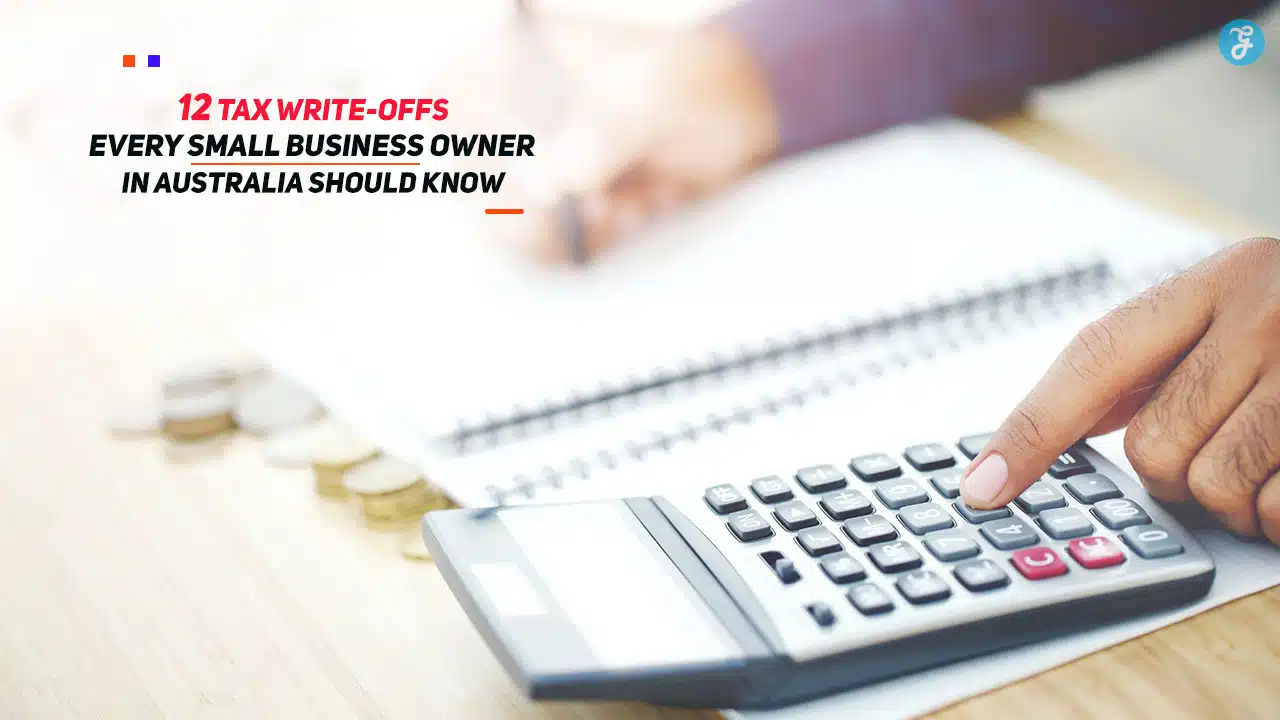As a small business owner in Australia, understanding the tax system and leveraging deductions is essential for reducing your taxable income and improving cash flow.
Tax write-offs allow you to claim expenses that are necessary for running your business, helping you save significantly during tax season.
This guide covers 12 vital tax write-offs that every small business owner in Australia should know, ensuring you’re not leaving money on the table.
From office supplies to travel expenses, these deductions can help maximize your business savings.
1. Home Office Expenses
What You Can Claim
If you operate your business from home, you can deduct various expenses associated with maintaining your home office.
Examples of Deductible Expenses
- Electricity and heating costs.
- Internet and phone bills.
- Depreciation of office furniture and equipment.
Eligibility
- You must use a specific area of your home exclusively for business purposes.
- Keep detailed records of all expenses, including receipts and bills.
Pro Tip: Use the Australian Taxation Office’s (ATO) fixed-rate method for simplicity, claiming 67 cents per hour for running expenses.
2. Business Travel Expenses
What You Can Claim
Expenses incurred while traveling for business purposes, such as meetings, conferences, or client visits, are deductible.
Examples of Deductible Expenses
- Airfare, train, or bus tickets.
- Accommodation and meals for overnight stays.
- Taxi fares and car rentals.
Eligibility
- Expenses must be directly related to your business activities.
- Keep a travel diary for trips longer than six nights.
Pro Tip: Personal expenses during business travel, such as sightseeing, are not deductible. Always separate these costs.
3. Vehicle and Fuel Costs
What You Can Claim
If you use your vehicle for business purposes, you can claim associated expenses.
Examples of Deductible Expenses
- Fuel and maintenance costs.
- Registration and insurance.
- Depreciation of the vehicle’s value.
Methods of Claiming
- Cents-per-kilometre method: Claim up to 5,000 km at a flat rate per kilometre.
- Logbook method: Claim actual expenses based on the percentage of business use, supported by a logbook.
Pro Tip: Keep a detailed logbook for at least 12 consecutive weeks to substantiate your claims.
4. Equipment and Tools
What You Can Claim
The cost of purchasing, repairing, or maintaining tools and equipment essential for your business is deductible.
Examples of Deductible Items
- Computers, printers, and software.
- Machinery and work-specific tools.
- Office furniture such as desks and chairs.
Instant Asset Write-Off
Eligible small businesses can claim the full cost of assets up to a specific threshold, depending on the purchase date.
Pro Tip: Check the latest ATO guidelines on instant asset write-offs to maximize your claims.
5. Marketing and Advertising Expenses
What You Can Claim
Promotional activities aimed at attracting or retaining customers are fully deductible.
Examples of Deductible Expenses
- Website development and hosting fees.
- Online ads on platforms like Google and Facebook.
- Business cards, brochures, and signage.
Pro Tip: Track all marketing expenses, including receipts and invoices, to ensure accurate deductions.
6. Employee Wages and Superannuation
What You Can Claim
Salaries, wages, and superannuation contributions for employees are fully deductible.
Additional Deductible Expenses
- Recruitment costs.
- Staff training and development programs.
- Fringe benefits provided to employees.
Pro Tip: Make superannuation payments on time to avoid penalties and ensure full deductibility.
7. Professional Services and Fees
What You Can Claim
Professional fees related to managing or running your business are deductible.
Examples of Deductible Services
- Accounting and bookkeeping services.
- Legal fees for business matters.
- Consulting fees for business strategy or growth.
Pro Tip: Expenses for personal legal matters or non-business-related consulting are not deductible.
8. Insurance Premiums
What You Can Claim
Premiums for business-related insurance policies are deductible.
Examples of Deductible Insurance
- Public liability insurance.
- Workers’ compensation insurance.
- Professional indemnity insurance.
Pro Tip: Review your insurance policies annually to ensure you’re adequately covered and claim eligible expenses.
9. Education and Training
What You Can Claim
Courses, workshops, and training programs directly related to improving your business or job skills are deductible.
Examples of Deductible Education
- Online courses for business management.
- Industry-specific certifications.
- Conferences and seminars.
Pro Tip:
Ensure the training is directly linked to your current business activities, as unrelated courses are not deductible.
10. Interest and Bank Fees
What You Can Claim
Interest on business loans and associated bank fees can be deducted.
Examples of Deductible Expenses
- Loan interest for purchasing business assets.
- Overdraft fees and transaction charges.
- Merchant fees for processing credit card payments.
Pro Tip: Maintain clear records of business-related financial transactions to support your claims.
11. Depreciation of Business Assets
What You Can Claim
You can claim depreciation on long-term business assets over their useful life.
Examples of Depreciable Assets
- Office buildings and rental properties.
- Large machinery or vehicles.
- Computers and other electronic devices.
Pro Tip: Use the ATO’s depreciation schedule to determine the correct rates for your assets.
12. Rent and Utilities
What You Can Claim
If you lease a commercial property or use utilities for business purposes, these costs are deductible.
Examples of Deductible Expenses
- Office rent or coworking space fees.
- Electricity, water, and internet bills.
- Cleaning and maintenance costs.
Pro Tip: For home-based businesses, only claim the portion of utilities directly related to your business activities.
Takeaways
Understanding and utilizing tax write-offs is a critical aspect of managing your small business in Australia. By keeping detailed records and staying informed about ATO regulations, you can maximize your deductions and save money during tax season.
Key Takeaways:
- Familiarize yourself with the 12 key tax write-offs to reduce your taxable income.
- Maintain accurate records and receipts to substantiate your claims.
- Consult a tax professional to ensure compliance and identify additional deductions specific to your business.
By taking advantage of these tax write-offs, you can reinvest savings into your business and set yourself up for long-term success. Start planning now to make the most of these opportunities in the upcoming financial year!









































